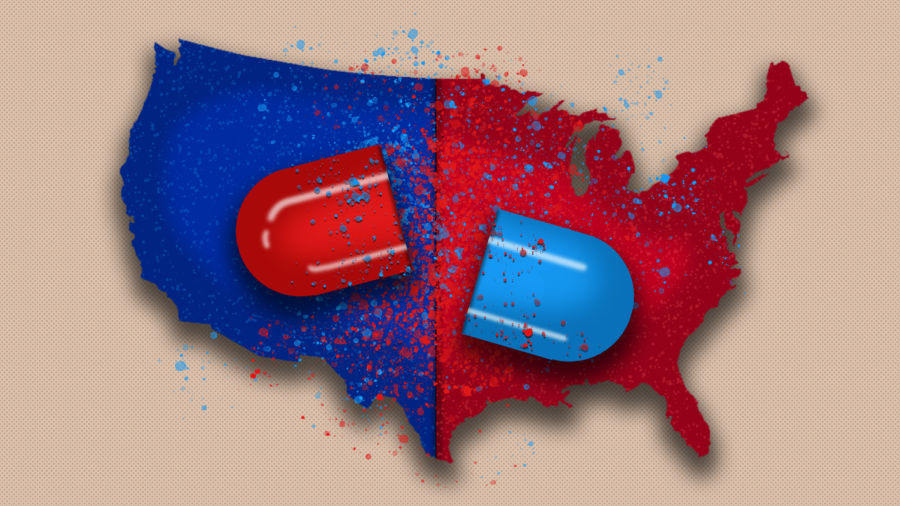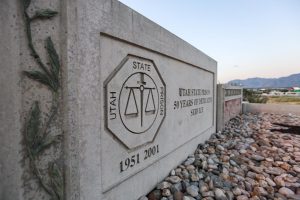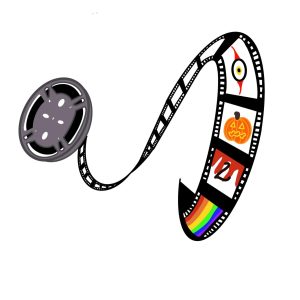Lezaic: Utah Needs Harm Reduction
(Graphic by Madelyn Foulger | The Daily Utah Chronicle)
January 16, 2023
Political debates have weaponized drug use as a talking point for a long time, more often harming than helping those who use drugs. Solutions, such as harm reduction, come from within affected communities and show lasting changes. But communities can only do so much before they run into legal obstacles. To truly support its residents, Utah must rework its understanding of drug use and support more harm reduction approaches.
Misconceptions about Harm Reduction
One of the biggest legal obstacles is the criminalization of drugs, which prevents the legalization of safe consumption sites. These sites, also called overdose prevention and supervised injection sites, aim to mitigate punitive drug policies and our overdose epidemic. Other countries have introduced such sites to effectively deal with their respective epidemics. Ours has yet to start prioritizing the life-saving possibilities of these programs. However, several states are trying to set up safe consumption sites despite complicating federal laws. Utah should join them.
But thanks to the uninformed criticisms of politicians and media outlets, overdose prevention sites (and other harm-reductive practices) receive an unfavorable reputation. Local politicians like John Huber, former U.S. Attorney for the District of Utah, spread baseless rhetoric. “We don’t want to abdicate here — normalizing drug use and drug abuse, we’re abdicating, and that’s not what Americans do,” he told KUTV.
In reality, safe consumption sites provide a hygienic space to use vetted, unlaced drugs with trained staff nearby. Staff members work to prevent and respond to emergencies like overdoses, as well as supply information on available social and health programs and services. Through such efforts, we’ve seen a decline in overdose deaths and HIV and hepatitis transmission. Safe consumption sites go hand-in-hand with other harm reduction approaches such as naloxone distribution, needle exchanges and fentanyl testing.
Opponents of this approach often cite illegality and the enablement of illicit drug use. But what they don’t understand is that legality does not equal morality, and as Utah Naloxone says, “No one can get better if they’re dead.”
Difficulties in Utah Policy
Fortunately, some politicians understand the life-or-death reality of the situation. Rep. Jennifer Dailey-Provost is one of them, and attributes part of Utah’s progress to some of her peers.
“The needle exchange bill was passed by former Sen. Brian Shiozawa and Rep. Steve Eliason … Naloxone legislation that has passed is largely thanks to Sen-Elect Jennifer Plumb, who has worked as an advocate in this space for a very long time,” she said. “Another important facet to improvements in harm reduction was a bill passed several years ago by Rep. Carol Spackman-Moss (with Jen Plumb as a citizen advocate) which improved our state’s good Samaritan statute. Prior to that bill, many people died of overdose because the people around them, also using illicit drugs, feared getting arrested if they called for help. This bill ensures that people who call an ambulance for an overdose will not implicate themselves when help arrives.”
Rep. Dailey-Provost herself has worked to introduce legislation for legalizing these sites. She recounts the difficulties of trying to have this conversation in Utah.
“I’ve tried running legislation several times,” she said. “I know that the bill to create a legal pathway for overdose prevention sites is a heavy lift in Utah, but even when the bill was changed to simply create a Harm Reduction Working Group, which would have brought stakeholders together to explore all harm reduction options, explore the pros and cons, and report back to the legislature, failed because it might have included discussion about overdose prevention sites. Too many legislators are convinced that this pathway would lead to more illicit drug use, even though years of data prove otherwise.”
Recentering People in Policy
Utah used to rank 4th in the country for opioid overdose deaths, but “We’ve recently dropped from 4th in the nation all the way down to 38th,” said MacKenzie Bray, executive director of the Salt Lake Harm Reduction Project. Bray cites more progressive drug policies, the work of groups like Utah Naloxone and public awareness of harm reduction as playing a critical role in this success.
The work cannot stop there. Bray emphasizes the importance of having conversations about substance use, saying, “Twelve percent of Utahns report using an illicit substance in the past year … that means that everyone in Utah knows someone who uses drugs — people often just don’t know or are embarrassed to admit that a friend or family member is using drugs. And people who use drugs may be ashamed or embarrassed to tell friends, family or coworkers because they’re afraid of social and financial repercussions.”
Bray shared her own personal experience. “My older brother passed away from a heroin overdose in 2016 and one of the things that was most surprising to me after his death was how many people reached out to talk about their friend or family member who had also been poisoned by an unsafe drug supply,” she said. “These were people that I had known for decades … and we were all hiding the fact that a loved one was using drugs in an unsustainable way.”
Bray went on. “There’s so much shame regarding drug use and it benefits no one while harming everyone,” she said. “People are afraid or anxious to have conversations about substance use but I find that when the conversation is brought up in a compassionate way, people really want to talk about it. People who use drugs and their friends and family want to have their questions answered or to discuss their fears and they deserve to be able to have these conversations and receive factful information.”
Rep. Dailey-Provost confirms this need for communication. “I sincerely think that we need to help facilitate one-on-one conversations between legislators and people who have lived experience with opioid addiction …,” she said. “Every life is worth fighting for, even if that means making concessions about harm reduction that will save those lives.”
Utah must respect and encourage its people’s autonomy and support their healing, rather than actively harming them through carceral and restrictive policies. You can find resources through the Utah Harm Reduction Coalition, Utah Naloxone and Salt Lake Harm Reduction Project. Their websites list available services, trainings and much more.













